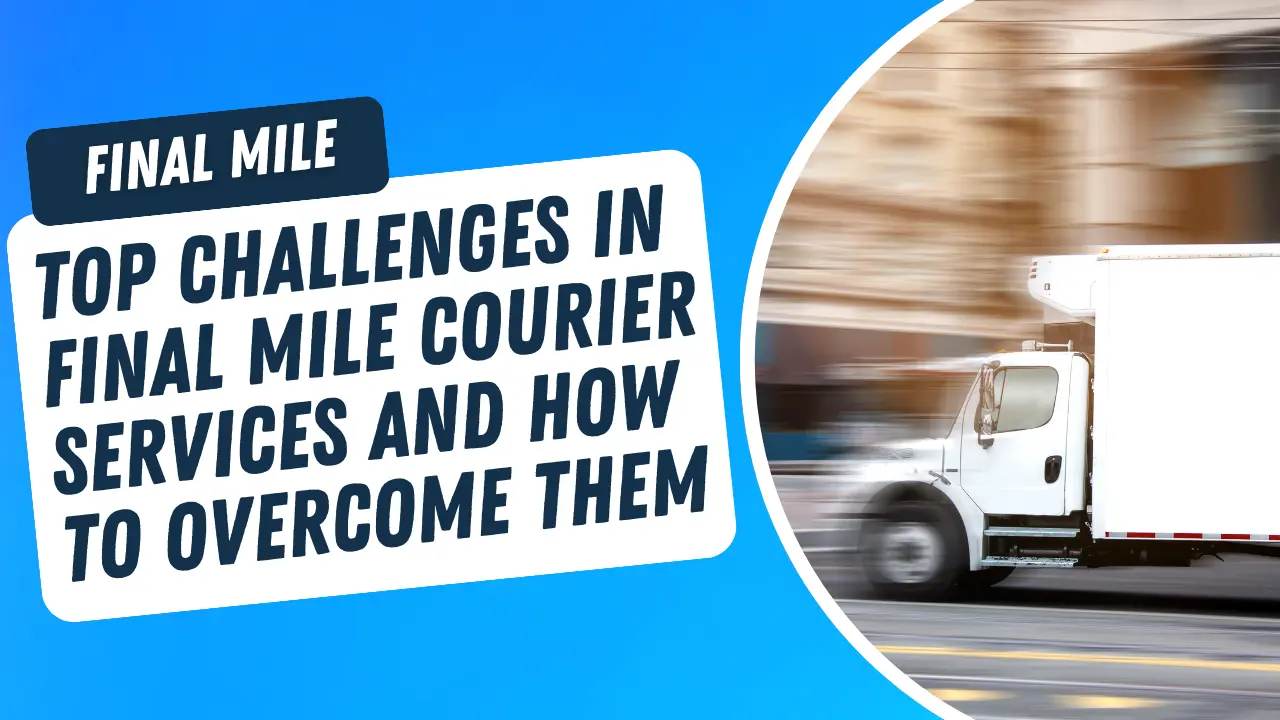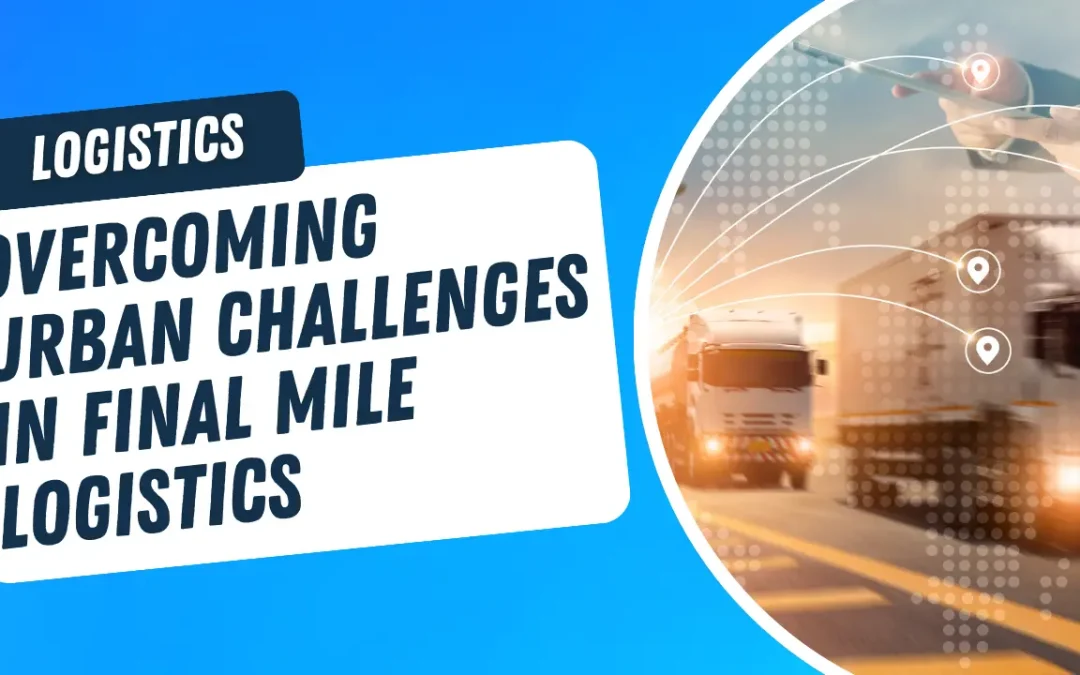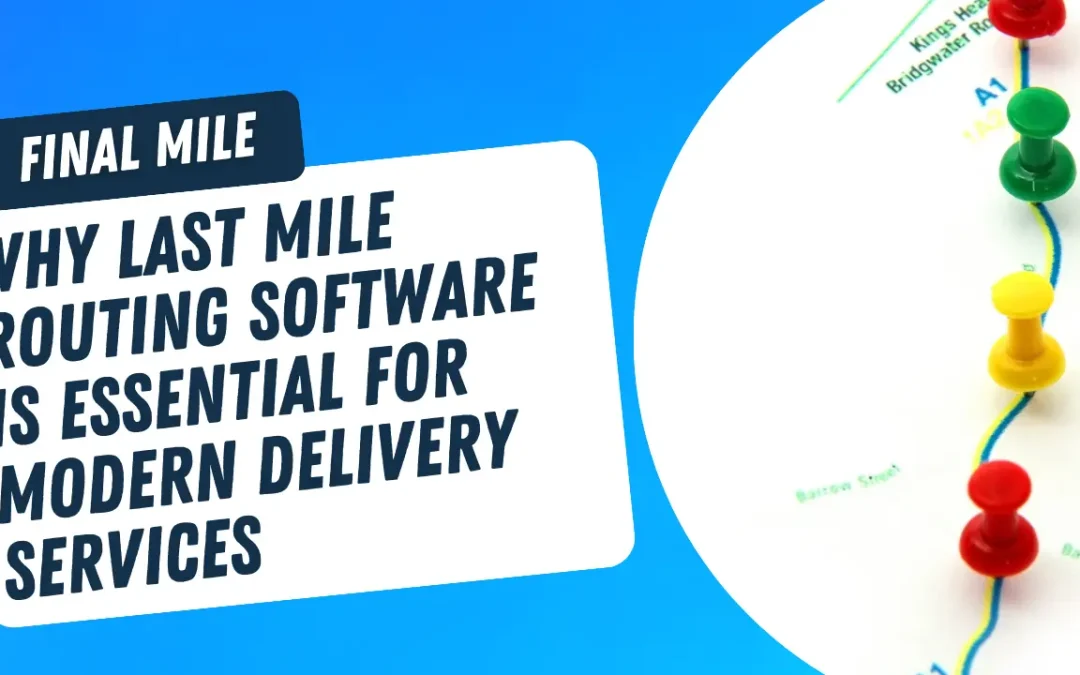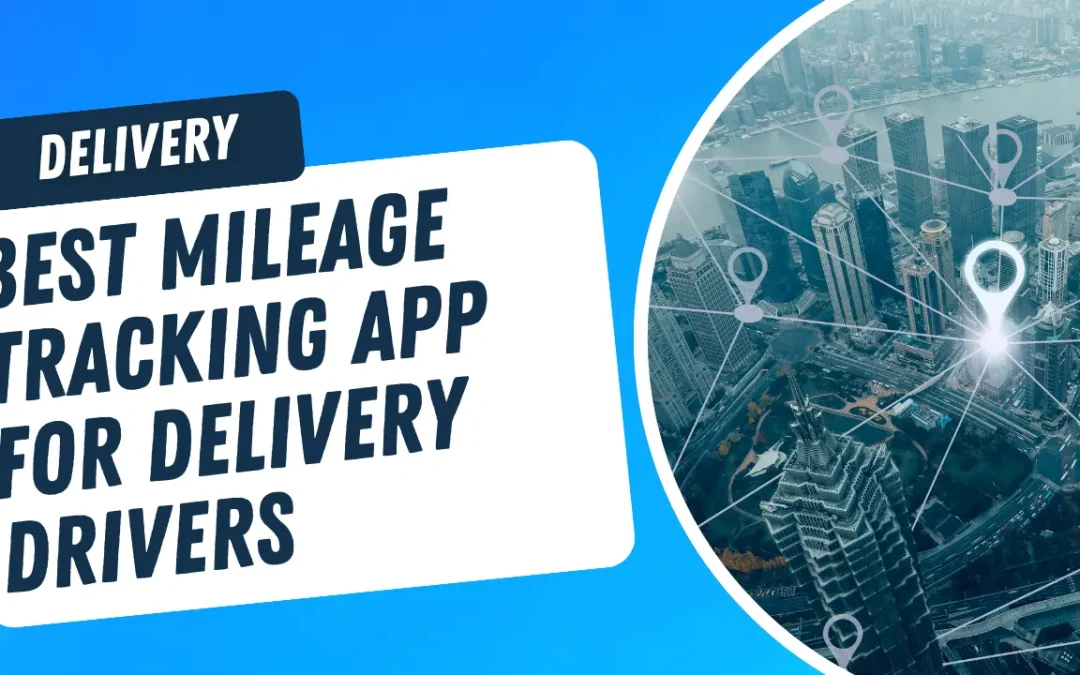Final mile delivery services are essential in bridging the gap between distribution centers and end customers, ensuring timely and efficient delivery services. The complexities of urban environments, high operational costs, and the need for seamless coordination make this stage particularly challenging. However, by leveraging advanced technologies and adopting innovative strategies, businesses can enhance their final mile delivery operations and meet customer demands more effectively.
To address these challenges, many companies are turning to automation, route optimization, and real-time tracking systems. These technologies not only streamline the delivery process but also improve transparency and customer satisfaction. Moreover, integrating warehousing services with final mile services allows for better inventory management and quicker order fulfillment.
Major Challenges in Final Mile Courier Services
Navigating the intricacies of last mile delivery presents numerous challenges that can hinder the efficiency and effectiveness of final mile delivery services. One of the primary obstacles is the complex nature of urban environments. Traffic congestion, limited parking, and navigating through densely populated areas can be highly time consuming, leading to delays in mile deliveries. Additionally, the increasing demand for same day delivery adds pressure on logistics providers to ensure rapid and reliable service from the distribution center to the customer’s home.
Managing long distances is another significant challenge in last mile services. Rural and remote areas often require extensive travel, making it difficult to maintain cost-effective and timely deliveries. This geographic spread can strain resources and increase operational costs, impacting the overall efficiency of last mile delivery services.
Rising Customer Expectations and Urban Delivery Obstacles
One of the most pressing challenges in last mile delivery services is meeting rising customer expectations. Consumers today demand faster, more reliable deliveries, with a significant emphasis on same day delivery options. This expectation puts tremendous pressure on logistics providers to optimize their delivery processes. Additionally, urban delivery obstacles such as traffic congestion, limited parking, and navigating densely populated areas make it difficult to maintain the efficiency and timeliness of mile deliveries. These challenges not only cause delays but also increase operational costs, impacting the overall performance of last mile delivery services.
Managing Long Distances and High Volume Deliveries
Another significant challenge in last mile courier services is managing long distances, especially in rural and remote areas. Deliveries over extensive geographic areas are time consuming and costly, making it difficult to maintain efficiency and cost-effectiveness. The surge in e-commerce has exacerbated this issue, leading to a higher volume of last mile deliveries that strain logistics networks.
Crowdsourced delivery models, which use independent contractors to fulfill orders, offer a potential solution to this problem. However, they come with their own set of challenges, such as inconsistent service quality and reliability. To overcome these issues, businesses need to adopt new technologies and strategic planning. Implementing automated dispatch systems, leveraging data analytics for better route planning, and integrating real-time tracking can help manage high volumes and long distances more effectively.
Managing Seasonal Peaks and Demand Fluctuations
One of the significant challenges in last mile courier services is managing seasonal peaks and demand fluctuations. During holidays and sales events, the volume of last mile deliveries can surge dramatically, straining logistics networks and resources. Businesses must find ways to scale their operations quickly to handle these spikes without compromising service quality. This often involves hiring additional temporary staff, increasing fleet capacity, and optimizing warehouse operations. Effective demand forecasting and flexible staffing models are crucial for managing these fluctuations and ensuring timely deliveries during peak periods.
Ensuring Delivery Security and Package Integrity
Ensuring the security and integrity of packages during the last mile is another critical challenge. Theft, damage, and loss of packages are common issues that can negatively impact customer satisfaction and business reputation. Implementing robust security measures such as tamper-evident packaging, secure delivery lockers, and real-time tracking can help mitigate these risks. Additionally, training delivery personnel on proper handling techniques and establishing clear protocols for addressing incidents can further enhance the security and integrity of deliveries. Businesses must prioritize these measures to protect their shipments and maintain customer trust.
Handling Reverse Logistics and Returns
Handling reverse logistics and managing returns efficiently is a complex aspect of last mile delivery services. As e-commerce continues to grow, so does the volume of returned items. Efficiently processing returns, managing inventory, and ensuring timely refunds are essential for maintaining a high level of customer satisfaction. Implementing streamlined return policies, using automated return management systems, and optimizing reverse logistics processes are key strategies for handling returns effectively. Businesses must address these challenges to ensure a smooth and hassle-free return experience for their customers, which is crucial for retaining customer loyalty and trust.
Strategies to Overcome Final Mile Delivery Challenges
To ensure success in last mile deliveries, businesses must adopt strategic approaches that address the unique challenges of this critical stage in the delivery process. One effective strategy is leveraging advanced technologies to enhance delivery speed and efficiency. Implementing route optimization software can significantly reduce delivery times by identifying the fastest routes, ensuring packages reach consumers’ doors promptly, whether for next day delivery or standard shipments.
Enhancing the delivery network is another crucial strategy. By establishing multiple distribution centers closer to key markets, companies can reduce the distance packages travel, thereby cutting down on delivery times and operational costs. This approach also enables retailers to offer more flexible delivery options, such as same-day and next-day delivery, which are increasingly demanded by consumers.
Leveraging Technology for Enhanced Efficiency and Speed
To overcome the challenges of last mile delivery, leveraging advanced technology is essential. Implementing route optimization software can drastically reduce delivery times by determining the most efficient routes for each package. This not only speeds up the delivery process but also minimizes fuel consumption and operational costs, enhancing the overall efficiency of the delivery network. Additionally, real-time tracking systems provide consumers with live updates on their shipment’s journey, improving transparency and building trust.
Expanding and Optimizing Delivery Networks
Expanding and optimizing the delivery network is another effective strategy for overcoming final mile delivery challenges. Establishing multiple distribution centers closer to key markets reduces the distance packages need to travel, enabling faster and more cost-effective deliveries. This approach is particularly beneficial for meeting the growing demand for same-day and next-day delivery options, which are increasingly expected by consumers.
Implementing Flexible Workforce Models
One effective strategy to overcome the challenges of final mile delivery is implementing flexible workforce models. This involves utilizing crowdsourced delivery personnel and independent contractors to handle fluctuating delivery volumes, particularly during peak periods. By expanding the workforce dynamically, businesses can scale their operations without incurring the fixed costs associated with a permanent workforce. Ensuring rigorous training and performance monitoring for these temporary workers is crucial to maintain high service standards. This approach allows companies to manage demand spikes effectively, ensuring timely and efficient deliveries even during busy periods.
Enhancing Customer Communication and Engagement
Improving customer communication is essential for overcoming final mile delivery challenges. Providing real-time updates on delivery status, estimated arrival times, and any potential delays can significantly enhance customer satisfaction. Utilizing multiple communication channels such as SMS, email, and mobile apps ensures that customers are well-informed throughout the delivery process. Additionally, offering flexible delivery options like time-slot selection and delivery rescheduling empowers customers and improves their overall experience. By prioritizing clear and proactive communication, businesses can build trust and loyalty, mitigating the impact of any delivery issues.
Leveraging Data Analytics for Continuous Improvement
Leveraging data analytics is a powerful strategy for addressing the complexities of final mile delivery. By analyzing data on delivery times, routes, customer feedback, and operational performance, businesses can identify areas for improvement and implement targeted strategies. Predictive analytics can help forecast demand, optimize inventory levels, and anticipate potential delivery bottlenecks. This data-driven approach enables continuous improvement in delivery processes, ensuring that companies can adapt to changing conditions and enhance their last mile delivery efficiency. Regularly reviewing and refining these insights ensures that businesses remain agile and responsive to both market trends and customer needs.
By incorporating these strategies, businesses can effectively tackle the challenges associated with final mile delivery, ensuring smoother operations, higher customer satisfaction, and improved overall performance.
Future Trends in Final Mile Courier Services
As the logistics industry evolves, several key trends are set to shape the future of final mile delivery services. One significant trend is the increased reliance on advanced technology to enhance efficiency and customer satisfaction. Technologies such as artificial intelligence (AI) and machine learning are being integrated into last mile delivery operations to optimize routes, predict delivery times, and improve overall supply chain management. These innovations enable businesses to deliver shipments more quickly and accurately, directly to the customer’s door, while minimizing operational costs.
Another emerging trend is the expansion of micro-distribution centers. By establishing smaller, strategically located distribution centers closer to urban areas, companies can reduce delivery times and meet the growing demand for same-day and next-day delivery services. This approach not only enhances the efficiency of final mile services but also supports the high level of service expected by today’s consumers.
Integration of Advanced Technologies
The future of last mile delivery is heavily influenced by the integration of advanced technologies. Innovations such as artificial intelligence (AI), machine learning, and the Internet of Things (IoT) are revolutionizing final mile services. AI and machine learning algorithms optimize delivery routes, predict traffic patterns, and provide real-time adjustments to delivery schedules.
Sustainable and Eco-Friendly Delivery Solutions
Sustainability is becoming a cornerstone of the logistics industry, and future trends in last mile delivery reflect this shift. Companies are increasingly adopting eco-friendly delivery solutions to reduce their environmental impact. Electric vehicles (EVs) and bike couriers are gaining popularity as greener alternatives to traditional delivery trucks.
Personalization and Enhanced Customer Experience
Personalization is becoming a significant trend in the future of final mile courier services. Companies are increasingly focusing on creating a tailored delivery experience to meet individual customer preferences and enhance overall satisfaction. This involves offering customizable delivery options such as specific time slots, preferred delivery days, and alternative drop-off locations. Personalization extends to communication as well, with businesses using data analytics to provide personalized notifications and updates via preferred communication channels.
Moving Forward
The landscape of final mile courier services is fraught with challenges and opportunities. Addressing the inherent complexities of last mile delivery, such as rising customer expectations, urban delivery obstacles, and managing long distances, requires a strategic and multifaceted approach. Implementing advanced technologies like AI, machine learning, and IoT can significantly enhance efficiency and customer satisfaction by optimizing routes, predicting delivery times, and providing real-time tracking.
Expanding and optimizing delivery networks through the establishment of micro-distribution centers and leveraging crowdsourced delivery models are effective strategies for handling demand fluctuations and reducing delivery times. Enhancing customer communication, investing in sustainable delivery solutions, and integrating personalized delivery experiences are crucial for building trust and loyalty in a competitive market.





